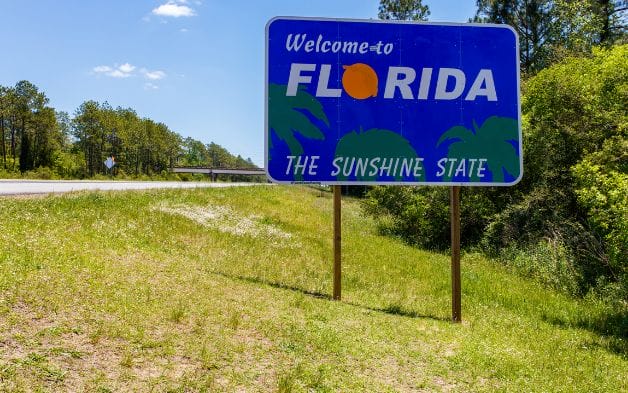Last June, Norway’s NOK 786 billion ($78 billion) Kommunal Landspensjonskasse (KLP), the fund for local government employees and healthcare workers, excluded 18 companies from its passive equity portfolio due to their links with Israeli settlements in the occupied West Bank. A few months later, Kiran Aziz, KLP’s new head of responsible investment took the helm, stepping into a contentious ESG debate that captures the divide between US and European shareholders over Israel and Palestine.
While KLP was pulling out of investments in the West Bank, a swathe of US pension funds ratcheted up a different campaign. When Unilever-owned Ben and Jerry’s ice cream also decided to pull out of Palestine citing the same human rights concerns as KLP, pension funds including Arizona, Florida, New Jersey and New York called on companies to continue operating in occupied Palestinian territories – or get added to their own blacklists
Bubble
“The financial industry is often in its own bubble, disconnected from reality on the ground. I have seen for myself what human rights violations are – and also how climate change is affecting people,” insists Aziz’s, a qualified lawyer who joined KLP with skills honed to argue and build a case following nine years at the International Commission for Jurists, the NGO that defends human rights and the rule of law. A board member of the Norwegian Refugee Council, a role that takes her to refugee camps to meet people forced to flee, she is resolute that investors have a responsibility to protect human rights.
And the legal profession has taught her about the need to stand firm and persist. “You need to have the courage to raise your voice, even if the company doesn’t engage. Many companies don’t want investors to interfere or tell them what to do, but investment is based on trust and companies should live up to certain standards.”
Facts
Aziz particularly applies her legal expertise to reflect on the purpose of regulation. It’s an approach that helps bring clarity given the frequent grey areas in law, particularly between international and local laws and if the institutions that are meant to uphold laws are weak. “You must think why is the law there, and who is it trying to protect,” she says. “Studying law, you learn about protecting rights and seeking justice. In many ways it’s the same in responsible investment because you are looking for the facts that could lead to the wrong investment.”
In the West Bank, those facts were most recently laid out in a 2020 list compiled by the UN High Commissioner for Human Rights which named 112 corporates with operations linked to the Israeli settlements in the occupied Palestinian territory. KLP was invested in 28 of the 112, and Aziz began contacting names on the list, trying to engage in a mostly fruitless process that ended up in a decision to divest from 18. “Only two or three companies where open to dialogue. We had to ask ourselves if there was a breach in human rights and if we were contributing to it.”
Divestment marks the end of the road for KLP effecting positive change via stewardship and engagement. But it can also grab attention, helps build knowledge in society around the ethical dilemmas of corporate activity and investment and puts new issues centre stage. KLP also continues to engage in dialogue with excluded companies.
Still, KLPs lack of progress engaging with corporates in the region reflects one of the key challenges of the process: the pension provider is not mandated to engage with governments. The only indirect access it has to governments is if they are also shareholders in listed companies. “It is difficult holding companies accountable for what governments are doing,” she says, adding: “Often their behaviour is linked, especially when governments are big shareholders in a company.” It has led her to believe that political risk will become increasingly important in investment decisions. In an important new seam to strategy she is increasingly focused on screening companies up front before they enter the index.
KLP monitors and cajoles 7000 companies across 50 countries tracking MSCI and Barclays’ equity and bond indices, of which it currently excludes over 200. “As an owner of 7000 companies globally you have quite a unique opportunity to set expectations and make sure companies have underlying economic activity that is responsible and sustainable,” she says. “We rely on publicly available information, and our expectations are levelled at boards and management.”
KLP uses data providers to access information and get an indication of the level of risk. She is less focused on ESG ratings but takes a keen interest in how a company is doing within its sector, using monitoring tools and working with other investors, stakeholders and civil society. “It is best to try and follow a company over time to see progress and if they are willing to make an effort and listen to shareholders expectations. We have a long-term perspective on our investments.” She is in dialogue with around 300 companies annually.
ESG is applied across the whole portfolio where strategy is focused on index portfolios offering broad market exposure and low cost, efficient asset management. Last year KLP sold €3.6 million of investments in firms involved in activities related to coal, oils sands, gambling, alcohol and environmental damage. KLP has 21.4 per cent allocation to equities, 16.5 per cent to bonds, 30.6 per cent to bonds held to maturity, 14.2 per cent to lending, 13 per cent in property and 4.3 per cent to other



